Ball in Andrew’s court after copping a serve in sex case
As he hides away in Scotland with his mother, the prince is running out of time and options. What now for the Queen’s golden son?
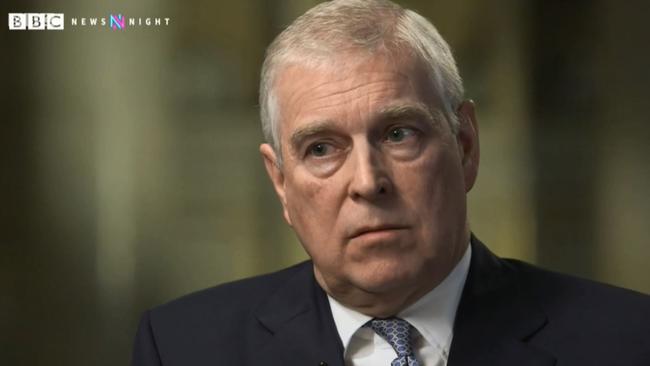
What now for Prince Andrew, the Queen’s golden son who has, at the very least, a very messy trans-Atlantic court case to deal with?
While Prince Andrew, 61, has been visiting his mother with his ex-wife Sarah Ferguson in Balmoral for the summer break; in New York he has been accused of serious sex assault allegations by Australian resident Virginia Roberts Giuffre.
Giuffre, 38, launched a civil case in the New York district court, accusing the royal of battery and emotional distress under the Child Sex Act.
It is a development Andrew probably long feared, knowing well the allegations and legal avenues Giuffre has pursued for the past five years but had hoped his status and privilege may have helped avert.
This month’s Scottish holiday break could well have turned into a crisis meeting with the 95-year-old Queen, still in mourning for Prince Phillip, having to cope with a recalcitrant grandson, Prince Harry, and now for the first time, a royal family member being sued.
It appears that in taking the cues of royal practice over the decades – to never confirm nor deny; to remain “above” accusatory allegations – Andrew has nonetheless found himself exposed to the US justice system.
Andrew has not been charged with any crime – this is a civil matter – but he faces a global court of public opinion that has already caused him to withdraw from any form of public life.
It is uncertain he will ever be able to return, for in any case the heir to the throne Prince Charles has been vocal about heading a “slimmed down’’ monarchy.
Since his car crash explanation on BBC in late 2019 where he failed to adequately explain his friendship with disgraced US financier and convicted sex offender Jeffrey Epstein, Andrew has been restricted to private events only.
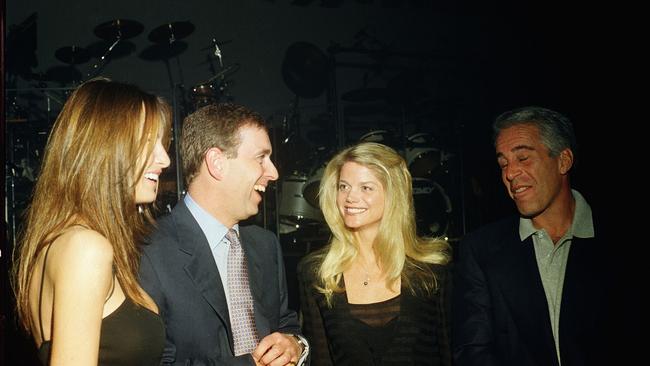
At the 2020 pandemic wedding of his daughter Princess Beatrice to Edo Mapelli Mozzi, Buckingham Palace released official photographs of the Queen and Prince Phillip with the happy young couple, but none of Andrew, who had walked his daughter down the aisle.
It has been a plummeting change of circumstances for the man who was once a swashbuckling and dashing naval hero of the Falklands War and for 10 years was a taxpayer-funded British trade envoy.
Giuffre’s allegations have been extensively aired across the world in recent times: she was recruited by Epstein’s associate Ghislaine Maxwell in 2000 when she was 16 and working at Mar-a-Lago. She was then pimped out by Maxwell’s partner, Jeffrey Epstein, to provide sex to his well-connected colleagues. She was with Epstein and Maxwell until 2002 when she met her Australian husband in Bali while attending a massage course that Epstein had sent her to.
In legal depositions, Giuffre – who now lives in Queensland – has detailed how men of the ilk of Bill Clinton, hedge fund billionaire Glen Dubin and model agency co-founder Jean Luc Brunel would associate with Epstein.
She has previously told a court she was pressured into having sex with various people, naming a handful of men. She added: “I don’t recall all of the people. There was a huge amount of people that I was sent to.”
She alleges she had sex with Prince Andrew on three occasions during 2001 when she was aged just 17. Giuffre’s claims that Prince Andrew engaged in sexual acts without her consent, knowing she was “a sex-trafficking victim” and that the sex took place at Epstein’s Manhattan house, in London at Maxwell’s mews house and on Epstein’s private island in the US Virgin Islands.
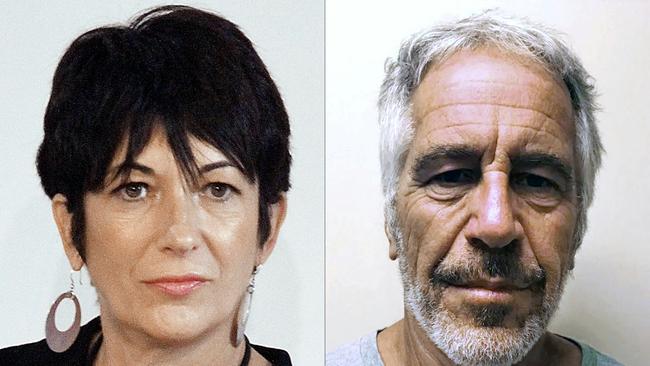
In the court documents for the case, Giuffre says she was “compelled by express or implied threats by Epstein, Maxwell, and/or Prince Andrew to engage in sexual acts with Prince Andrew, and feared death or physical injury to herself or another and other repercussions for disobeying Epstein, Maxwell, and Prince Andrew due to their powerful connections, wealth and authority”.
Andrew has vigorously protested his innocence and has denied the claims, saying he can’t remember ever meeting Giuffre, and suggesting that a photograph of himself with his arm around her was somehow doctored. He says he unequivocally regrets his ill-judged association and friendship with Epstein.
Complicating Andrew’s legal case is the timing. Maxwell is defending charges of trafficking minors for Epstein in November in a Manhattan federal court. Epstein committed suicide in August 2019, one month after being arrested on sex trafficking charges.
Andrew’s initial tactic of resisting responding to Giuffre’s legal claims has not gone down well. People well remember the days after 2019 BBC Newsnight interview aired, where he said the Queen agreed he should step back from public duties for the foreseeable future and noted: “Of course, I am willing to help any appropriate law enforcement agency with their investigations, if required.’’
Yet it was only when Andrew’s legal team brought in high-profile hotshot Hollywood lawyer Andrew Brettler several weeks ago – secretly at first so that Giuffre’s team wouldn’t serve papers on him – that Andrew was legally represented. Then, attempts by the prince’s legal team to contest that the court papers hadn’t been properly served bought some time, but only a few days.
By Wednesday, the High Court in London had agreed to serve the American papers on the prince, bypassing any cloak and dagger preparations that process servers may have had to resort to.
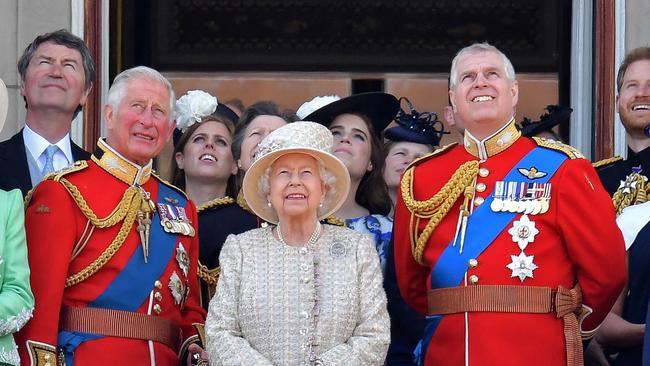
It is extraordinary that agents had been knocking on the gates of Andrew’s residence, Royal Lodge, in the Windsor Estate, but of course were stopped by armed police protection officers. On their second attempt at that property, one of the police officers agreed to accept the documents. Other copies were sent by registered Royal Mail. The next step would have been to try to confront Andrew in person when he was out and about – but he is still holed up in Balmoral Castle with the Queen.
Instead, thanks to the High Court intervention, the papers will be sent to the prince’s legal team. Although even this has now been contested by Prince Andrew, whose early fight at every step indicates he most definitely doesn’t intend to concede any ground. Giuffre’s lawyers attacked him for playing a “game of hide and seek behind palace walls”.
Such stalling tactics also didn’t play out well before the New York courtroom of Judge Lewis Kaplan, who expressed frustration that the prince’s strategy would only involve more expense and wouldn’t stop the litigation.
It was interesting that on Monday, Kaplan cut adrift – at this early stage in the proceedings – attempts by Andrew’s lawyers to introduce a 2009 sealed settlement, which they believe will stop Giuffre’s legal action in its tracks.
The prince’s legal defence is that this 12-year-old document, the basis of a financial settlement between Epstein and Giuffre, will prevent her from suing him, or any other associate of Epstein. Last month, Epstein’s lawyer Alan Dershowitz used this same agreement to get Giuffre’s claims of sexual battery against himself dropped.
But when Brettler tried to talk about the agreement, Kaplan said that the hearing was currently focused on whether the documents had been served, and not on other aspects – although he later acknowledged why the lawyers were trying to raise it.
“If there is a document that would provide your client with an affirmative defence to a claim, or help him out in England or both, you’d rather see it sooner rather than later. There’s a lot to be said for that point of view,” Kaplan said.
If that sealed document doesn’t help, then Andrew’s only other option for the case to disappear is to make a financial settlement with Giuffre, like Epstein and Maxwell have done before.
It is a common enough, expensive, resolution in the US. But in Britain, it would leave many unanswered questions and do little to restore the reputation of the fallen prince.


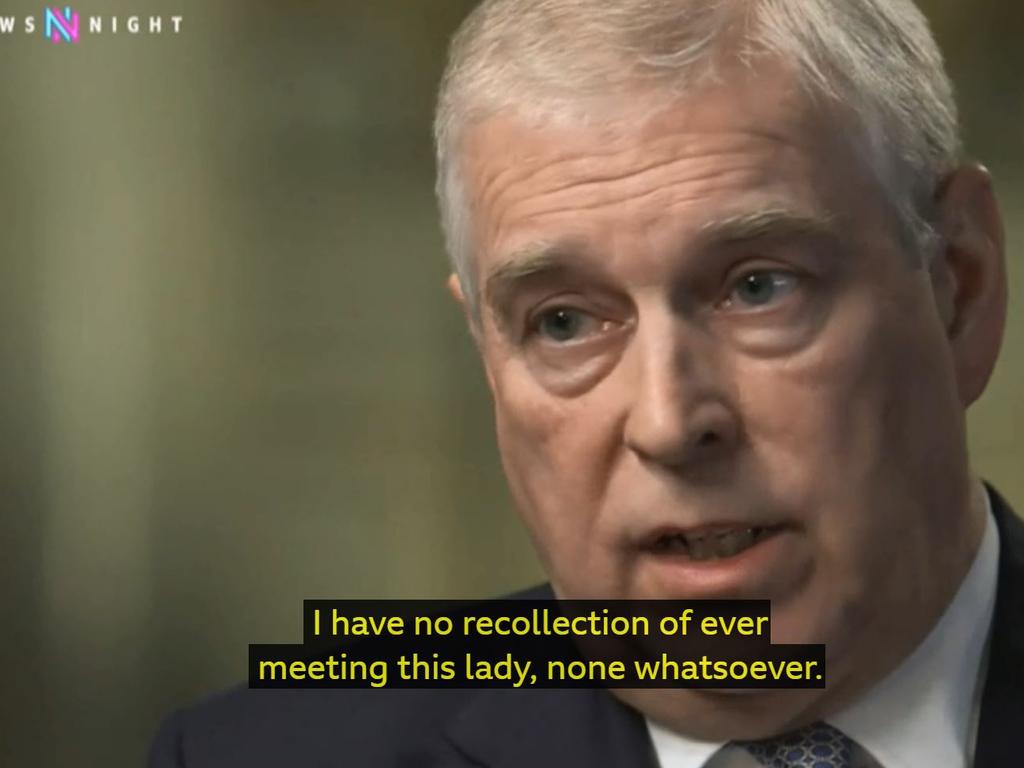

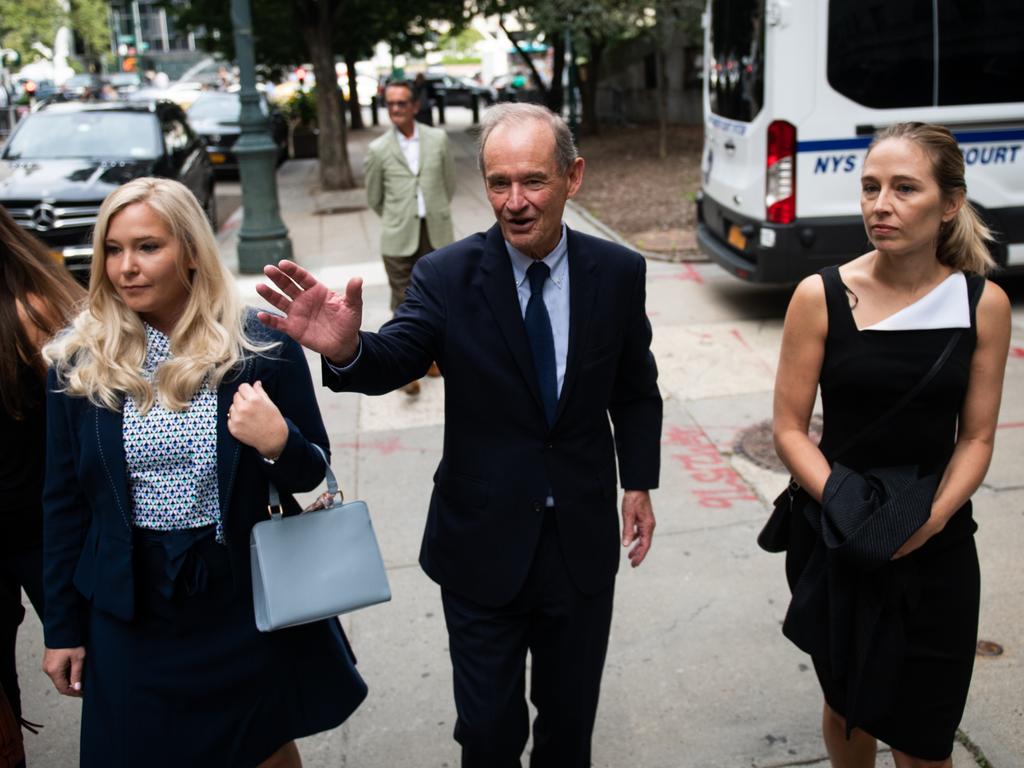


To join the conversation, please log in. Don't have an account? Register
Join the conversation, you are commenting as Logout